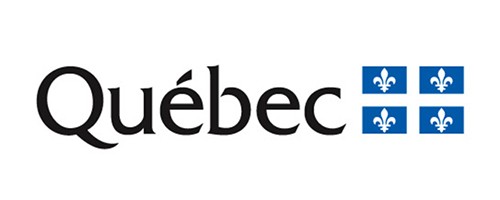LIBU’s Canadian entrepreneur and inventor at GRB Technologies, Mr. Raymond Boisvert, and Dr. Caroline Duchaine, Research Director at the Bioaerosol Laboratory of University Institute of Cardiology and Respirology of Quebec – Laval University (IUCPQ-UL), accompanied by Régis Labeaume, Mayor of Quebec City, Denis Bouchard, Chief Executive Officer of IUCPQ-UL, and Carl Viel, Chief Executive Officer of Québec International, made the announcement today.
“LIBU’s tour de force consists of integrating the best sterilization technology into a compact, modular and safe product, allowing consumable-free operation at a reasonable cost. The LIBU (Life Button) also eliminates more than 99% of the bacterial and viral pathogens resulting from contact with users’ fingers on elevator buttons,” said Raymond Boisvert of GRB Technologies.
“An innovative technology that intends to break one of the chains of contagion of infectious diseases, among other things, present in hospital and healthcare environments as well as in public and multi-residential buildings. The elevator button is the surface in a hospital’s built environment that contains the most bacteria and disease-causing organisms per square centimetre,” he added.
Developed entirely in Quebec, the LIBU technology was able to rely on a team of experienced collaborators, engineers, physicists and scientists from Quebec organizations such as Optech, Inno-Centre, AIworx, Kone, Solutions Novika, Adventa Design and Atelier de gravure Industrielle du Québec, with the help of researchers, virologists and microbiologists including Dr. Caroline Duchaine and her team from the IUCPQ-UL bioaerosols laboratory. In that regard, Dr. Duchaine, who heads the Canada Research Chair on Bioaerosols, mentioned that tests intended to determine the effectiveness of the LIBU buttons in a real-time setting on elevators located at the IUCPQ-UL will begin next January.
Mr. Boisvert acknowledged the significant contribution of physicist André Villemaire and engineer Alexandre Vallières, as well as Optech engineer Martin Langlois, who supervised the work of an entire team of scientists, programmers and technologists.
“Innovation is at the heart of the world-class Research Centre at the Institut universitaire de cardiologie et de pneumologie de Québec - Université Laval. We are fortunate to have Dr. Caroline Duchaine and her team who contributed to the development of the new device being presented today. In this way, our researchers and specialists have made a concrete contribution to the advancement of science and technology. This technological breakthrough will certainly have a significant positive global impact,” said Denis Bouchard, President and CEO of the Institut.
The development of LIBU has been supported by financial contributions from the Ministère de l’Économie et de l’Innovation, Québec City and Inno-centre. The team from Québec International also supported GRB Technologies during the various stages of its business development.
“Québec City is proud to contribute to this ingenious project through its Vitrine technologique program,” said the mayor of Québec City, Régis Labeaume. This program allows innovative companies to assert themselves and test their products in real-life situations.”
“The Québec City region is home to ingenious and bold entrepreneurs. At all times, Québec International supports them in helping turn their ideas into commercial success. LIBU from GRB Technologies is a concrete example of the importance of supporting entrepreneurship in order for the regional economy to remain more innovative and prosperous than ever,” said Carl Viel of Québec International.
Quick facts
- Developed entirely in Quebec by GRB Technologies, the LIBU button integrates proven UVC radiation sterilization technology into an elevator button in an entirely new way.
- LIBU’s technological approach has been demonstrated in the laboratory by the IUCPQ-UL Bioaerosols Laboratory in research work carried out in 2017 and December 2020.
- The LIBU buttons will be installed in two of the elevators of the IUCPQ-UL starting in January 2021. Dr. Caroline Duchaine will oversee studies on the efficacy and identification of microbes on the buttons. The research will take place over four seasons.
- The marketed version of LIBU will reduce the presence of bacteria and viruses by more than 99.99% in just a few seconds.
- Developing LIBU will have cost more than $1 million.
- A “fomite” is an object contaminated by pathogenic organisms. Fomite surfaces with frequent contact are those with which people’s hands often come into contact. Examples of common hospital contact surfaces include (but are not limited to) doorknobs, elevator buttons, telephones, call bells, switches, flush levers, monitoring equipment, intravenous pumps, bedside tables and the edges of divider curtains.
- In 2019, the CDC (Center for Disease Control) identified the following as the three most important health challenges in the United States: germ control on hospital surfaces and germ control on long-term health centre surfaces.
- An infection or disease is called “nosocomial” when, absent at the time of the patient’s admission to the hospital, it begins and develops at least 48 hours after hospitalization.
- The average cost of a single nosocomial infection is US$30,000.



